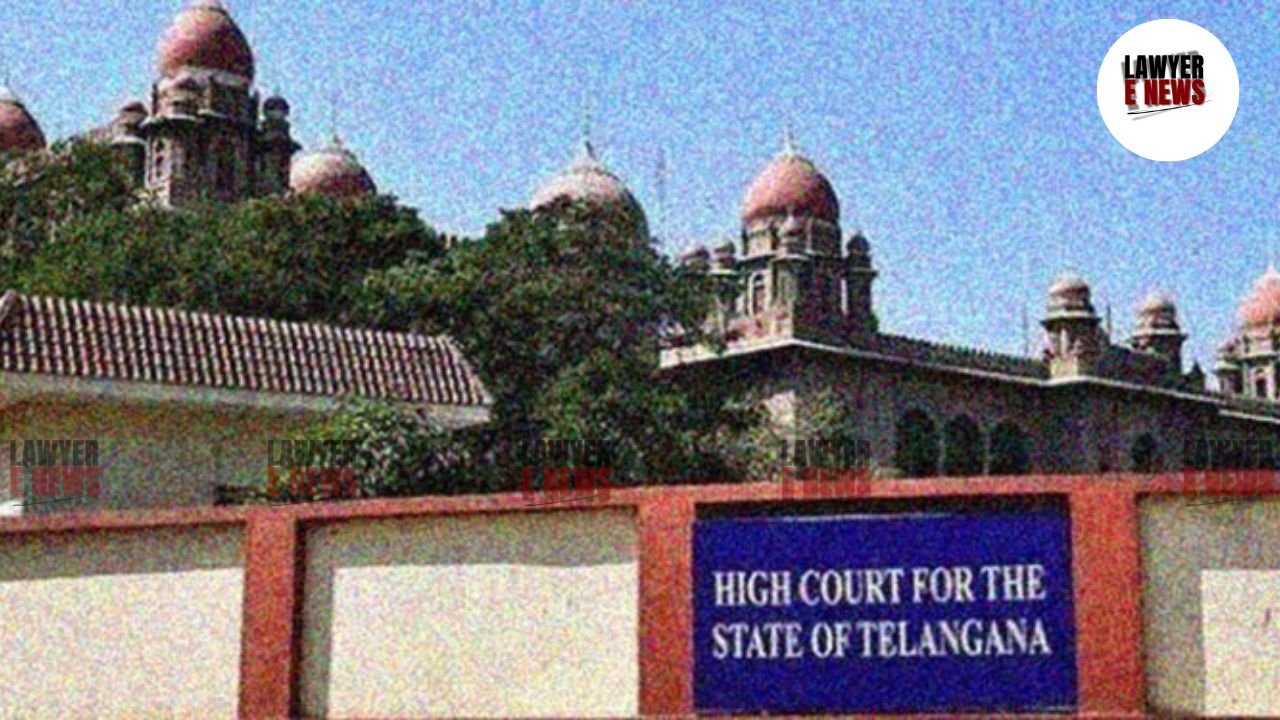-
by Admin
18 December 2025 4:36 AM



Telangana High Court, comprising Justice K. Surender and Justice Anil Kumar Jukanti, modified the death penalty awarded to Bhaskar Ali, aged 62, by the Fast Track Special Court, Sangareddy, in the case involving the rape and murder of a 5-year-old girl. The Court commuted the death sentence to life imprisonment with a stipulation of no remission or premature release for 30 years, including a 15-year prohibition on parole.
The appellant was convicted under Sections 302, 363, and 376AB of the Indian Penal Code (IPC); Section 5 read with Section 6 of the POCSO Act, 2012; and Section 3(2)(v) of the Scheduled Castes and Scheduled Tribes (Prevention of Atrocities) Act, 2015.
On October 16, 2023, the appellant lured the victim with a cool drink, took her to a cotton field near a labor camp in Velimala village, and committed the crime. The victim’s body was discovered based on the appellant’s confession, and forensic evidence confirmed the cause of death as trauma and shock due to rape.
The Fast Track Special Court sentenced Bhaskar Ali to death on September 11, 2024, citing the "rarest of rare" doctrine. The decision was referred to the High Court for confirmation, alongside the appellant's appeal against conviction and sentence.
The High Court observed that the appellant was last seen with the victim, as corroborated by CCTV footage and testimonies of eyewitnesses (PWs 3 and 4). The appellant failed to provide any plausible explanation regarding the victim’s whereabouts after they were seen together, thereby shifting the burden of proof under Section 106 of the Indian Evidence Act.
Referring to the Supreme Court judgments in Pappu v. State of Uttar Pradesh and Mohd. Firoz v. State of Madhya Pradesh, the Court reiterated that failure to offer a reasonable explanation strengthens the chain of circumstantial evidence.
The appellant confessed during interrogation and led the police to the crime scene where the victim's body was found. The Court upheld the admissibility of this confession under Section 27, emphasizing that the recovery of the body directly linked the appellant to the crime.
The forensic report detected human semen on the victim’s clothing but failed to yield amplifiable DNA. The High Court clarified that the lack of DNA evidence did not weaken the prosecution’s case, as other circumstantial evidence conclusively established the appellant's guilt.
The Court found that the prosecution did not prove that the crime was motivated by the victim’s caste identity. Therefore, the charge under Section 3(2)(v) of the SC/ST Act was not sustained.
The High Court revisited the doctrine of "rarest of rare cases" outlined in Bachan Singh v. State of Punjab and subsequent judgments. While affirming the appellant's guilt, the Court considered mitigating factors such as:
The appellant’s age (62 years).
Absence of prior criminal antecedents.
Lack of premeditation or deliberate intent to kill the victim.
The Court observed that the death resulted from trauma and shock caused by rape, rather than a direct act of killing.
The Telangana High Court upheld the appellant’s conviction but commuted the death penalty to life imprisonment with a minimum term of 30 years without remission. The judgment underscores the judiciary's nuanced approach to balancing retributive justice with the principles of reformative justice.
Date of Decision: December 5, 2024
